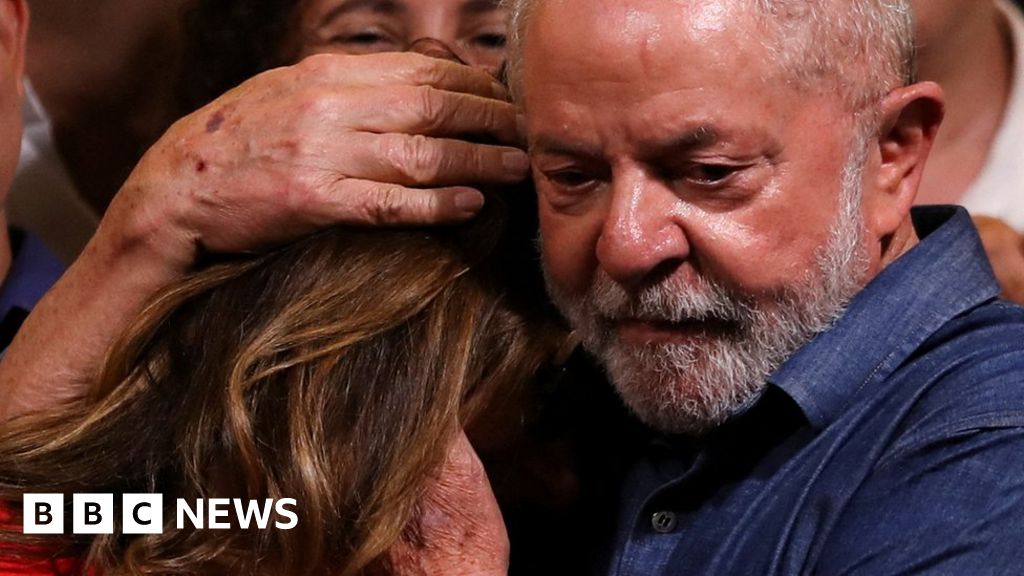
www.bbc.com
Brazil election: Lula makes stunning comeback
The country swings back to the left, four years after electing a far-right leader.
International
Brazil has taken a turn to the left as former president Luiz Inácio Lula da Silva beat far-right incumbent Jair Bolsonaro in the presidential election.
After a divisive campaign which saw two bitter rivals on opposite sides of the political spectrum go head to head, Lula won 50.9% of the votes.
It was enough to beat Jair Bolsonaro, whose supporters had been confident of victory.
But the division which this election has highlighted is unlikely to vanish.
It is a stunning comeback for a politician who could not run in the last presidential election in 2018 because he was in jail and banned from standing for office.
He had been found guilty of receiving a bribe from a Brazilian construction firm in return for contracts with Brazil's state oil company Petrobras.
Lula spent 580 days in jail before his conviction was annulled and he returned to the political fray.
"They tried to bury me alive and here I am," he said, kicking off his victory speech.
Since the announcement, congratulations have been coming in from leaders around the world, including US President Joe Biden, who noted the result came "following free, fair, and credible elections". He added he was looking forward to continuing cooperation.
Russian President Vladimir Putin also offered his "sincere congratulations", saying the results had confirmed Lula's "impressive political authority".
India's Narendra Modi said he looked forward to deepening ties, while UK Prime Minister Rishi Sunak tweeted: "I look forward to working together on the issues that matter to the UK and Brazil, from growing the global economy to protecting the planet's natural resources and promoting democratic values."
Five key facts about Lula
77 years old
Left-wing
Former metal worker
President from 2003-2010
Imprisoned in 2018 but conviction was later thrown out
Opinion polls suggested from the start that he would win the election, but when his lead in the first round was much narrower than predicted, many Brazilians started to doubt their accuracy.
air Bolsonaro's backers - encouraged by their candidate's allegations that "the establishment" and the media were against him and therefore underplaying his support - had complete faith in his victory.
The left-wing leader's victory is likely to rankle with these Bolsonaro fans, who routinely label Lula "a thief" and argue that the annulment of his conviction does not mean he was innocent, just that the proper legal procedure was not followed.
And while Jair Bolsonaro has lost, lawmakers close to him won a majority in Congress.
This means that Lula will face stiff opposition to his policies in the legislative body when he takes office on 1 January.
But Lula, who served two terms in office between January 2003 and December 2010, is no stranger to forging political alliances.
As his vice-presidential running mate he chose former rival Geraldo Alckmin, who ran against Lula in previous elections.
His strategy of creating a "unity" ticket seems to have paid off and drawn voters into the fold who may not have consider otherwise casting a ballot for his Workers' Party.
In his victory speech, Lula struck a conciliatory tone, saying he would govern for all Brazilians and not just those who voted for him.
"This country needs peace and unity. This population doesn't want to fight anymore," he said.
Jair Bolsonaro has yet to concede. The campaign had in part been so tense because the far-right president had cast doubts - without offering any evidence - on the reliability of Brazil's electronic voting system.
This fomented fears he might not accept the result if it went against him.
A day before the second round however, he stated that: "There is not the slightest doubt. Whoever has more votes, takes it [the election]. That's what democracy is about."
























































